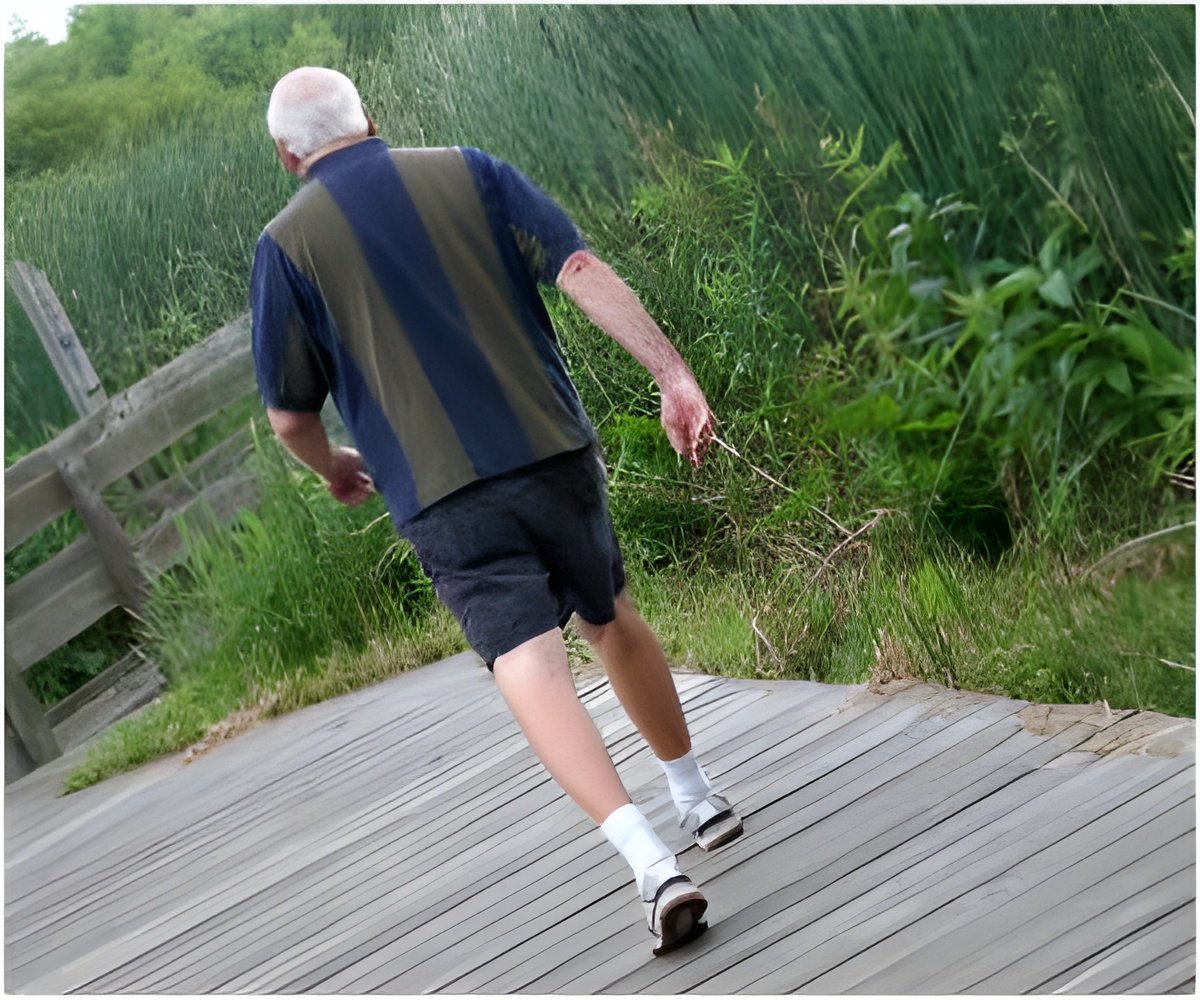Exercising in virtual environment could help Parkinson patients to cope with walking problems, Australian researchers believe.

The news could come as a great relief to patients suffering from the phenomenon known as 'freezing of gait' (FOG). FOG affects over half of all Parkinson's patients, and is commonly triggered by having to walk through narrow doorways.
"Patients experiencing FOG suddenly feel like their feet have been glued to floor as they try to walk, often causing them to fall," said Dr Simon Lewis, Director of the PD research clinic at the Brain and Mind Research Institute (BMRI), University of Sydney.
In a world-first study, the BMRI team collaborated with Southern Radiology to devise a realistic virtual reality (VR) environment with a series of corridors and doorways, which patients navigate using foot pedals.
"Our preliminary results show that patients with FOG have a delay in their stepping pattern when passing though doorways in the VR. We didn't see this in patients without FOG or in healthy control subjects," Dr Lewis said.
Advertisement
"Finally, as VR allows patients to walk whilst lying down we have even been able to use our novel brain scanning technique to see what is going on in the brain during freezing episodes.
Advertisement
According to Dr Lynette Masters, Clinical Director of MRI at BMRI, diseases of the brain and mind, including Parkinson's disease, dementia, substance abuse and clinical depression, now account for a significant number of all illnesses.
"MRI uses magnetic fields and radio waves to produce high quality two- or three-dimensional images of brain structures without the use of ionizing radiation (X-rays) or radioactive tracers.
"In research, MRI can be used in the development of novel biomarkers and non-invasive imaging technologies that help improve our understanding of disease and, ultimately, lead to better diagnosis and treatment of debilitating illnesses," Dr Masters said.
Parkinson's disease affects 80,000 Australians costing the nation more than $6 billion every year. Dr Lewis and his team are now recruiting patients for a trial investigating whether there are benefits from exercising in VR for Parkinson's disease patients who experience FOG.
Source-Medindia











